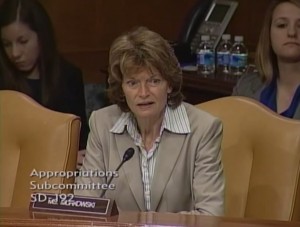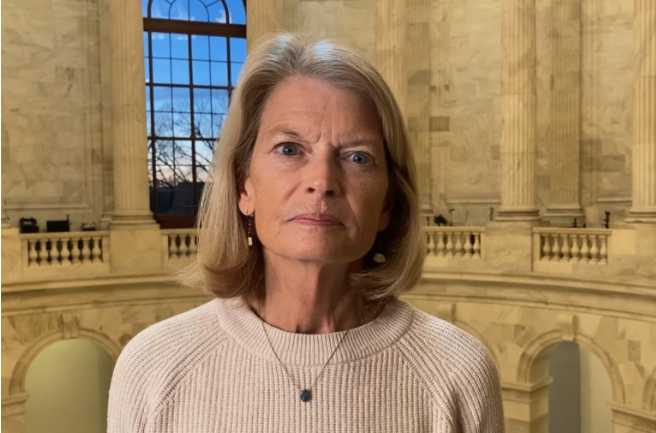
WASHINGTON, D.C. – As the U.S. Senate Appropriations Committee conducts its annual reviews of federal agency spending and priorities, Senator Lisa Murkowski Wednesday used the appearance of Missile Defense Agency (MDA) Director Admiral James Syring on Capitol Hill to get clarity about Alaska’s pre-eminent role in the nation’s defense.
At a hearing of the Senate Defense Appropriations Subcommittee, the importance of Alaska’s missile fields at Fort Greely were a focal point, along with the Long Range Discrimination Radar project that will receive $50 million for design work this fiscal year. During the question-and-answer part of the hearing, Admiral Syring informed Murkowski that MDA received several design proposals last week, and he plans to evaluate them in the months to come with a final decision this September.
Murkowski opened up her questioning of Admiral Syring by making reference to Alaska’s proximity to both North Korea and Iranian missile threats, saying “[Alaskans] know the justification for maintaining and constantly improving a capable, credible and highly-advance long range discrimination radar (LRDR).” She then asked Syring to share his views with the committee of the LRDR site in Alaska and what it could mean to the nation.
Admiral Syring responded that LRDR is “critically important” with regards to the threat posed presently by North Korea, saying “we must have consistent track and elimination capability against that threat. It’s a must.”
Murkowski then intervened for emphasis, asking Syring “I’d like you to reinforce that, because some might suggest this is a ‘nice to have’ but you’re saying it’s a “must have.’”
Syring responded to Murkowski “What you and the nation pay us to do at the Missile Defense Agency is to keep our nation ahead of the threat … The radar and the discrimination it provides to give the warfighter that information to properly intercept the threat is vital.”
Murkowski closed her questioning by asking Syring to confirm whether the 2016 budget is sufficient to meet the MDA’s needs with both Greely’s missile fields and the LRDR project; he responded “Yes, ma’am.”







